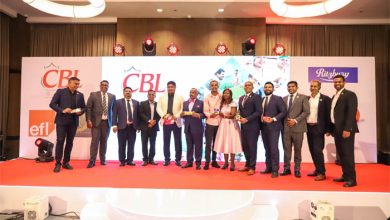Psychological testing: Big business but little relevance.

 by Dr. Marcel de Roos (Psychologist PhD, the Netherlands)
by Dr. Marcel de Roos (Psychologist PhD, the Netherlands)
Psychological testing has become well known in almost every aspect of our society. In the educational world, in the corporate world or just “a relationship test” in a magazine, the tests seem to pop up everywhere.
Intelligence, extroversion, empathy, leadership, learning difficulties, there seems to be a test for everything. The conclusion of a test is often used in the selection of employees or students because it supposedly tells something about their future functioning. But can we really measure human qualities?
Psychological tests are extremely untrustworthy. Especially personality tests based upon self-reporting questionnaires are notorious. Still, personality testing has become a booming business ($400 million a year), and very much sought after, in particular in the corporate world. It promises quick answers (in percentages and numbers) to complex staff and management issues.
The most important problem with psychological tests is their lack of validity. The validity of a test is a scientific term that estimates how well the test measures what it claims to measure. Very often I see psychological tests praised for their supposedly high validity. However, in science there are different kinds of validity. The scope of this article is such that I can’t go into detail about this. Information can be obtained through relevant books or the internet. The kind of validity that test-developers usually speak about is internal validity and refers to the consistency of the test. It says nothing about the kind of validity that matters, predictive validity, which is mostly very low or even absent. Predictive validity is the way in which the test has predictive value. For example a test to determine which candidate will perform well in a job.
Personality tests are in theory designed for this purpose but in practice most of them score extremely low on predictive validity and therefore are pretty much useless. A 2007 review of the academic literature (Morgeson, et al., Are we getting fooled again? Coming to terms with limitations in the use of personality tests for personnel selection, 60 Personnel Psychology 1029, 1037) found in authoritative studies correlations between personality and job success close to zero (between 0.03 and 0.15). Other studies found that personality tests used in employee selection account for approximately 5% of an employee’s job success while the other 95% of their performance is unexplained by personality.
Take for instance the very popular (over two million administered every year) Myers-Briggs Type Indicator (MBTI) test which is much used in the corporate world. Eighty-nine companies out of the US Fortune 100 make use of it, for recruitment and selection purposes. The MBTI is a psychological assessment system based on the book “Psychological Types” (1921) of the Swiss psychiatrist and psychotherapist Carl Jung. The theories of Jung are controversial and subject to numerous criticisms and he himself is seen as rather mystic. The MBTI was first published in 1962.
The MBTI places you in one of 16 personality types, based on dichotomous categories such as whether you are an introvert or an extrovert, or have a disposition towards being logical or emotional (what it calls “thinking” and ”feeling”). The alarming fact about the MBTI is that, despite its popularity, it has been subject to sustained criticism by psychologists for over three decades. One problem is that it has a low “test-retest reliability.” If you retake the test after for example a five-week gap, there’s about 50% chance that you will fall into a different personality category compared to the first time you took the test. Another point is (you might have guessed it) that the predictive validity is extremely low.
The MBTI is not valid to use for personnel assignments, hiring or promotion. It does not have predictive value for such uses. Despite its popularity and steady marketing, its archetype summaries of “personality” are much alike astrology or reading a horoscope. Although in Southeast Asian culture these two are taken pretty seriously, seen from a business and scientific point of view there are better ways to spend your money……….






